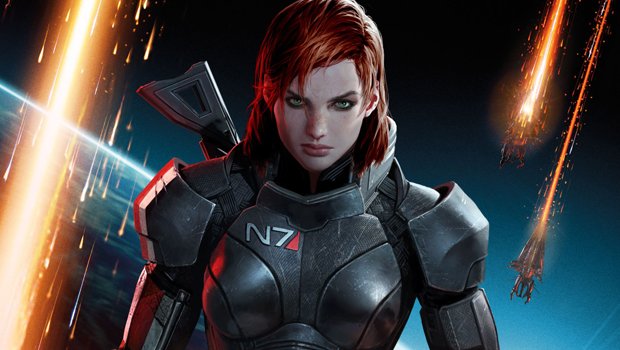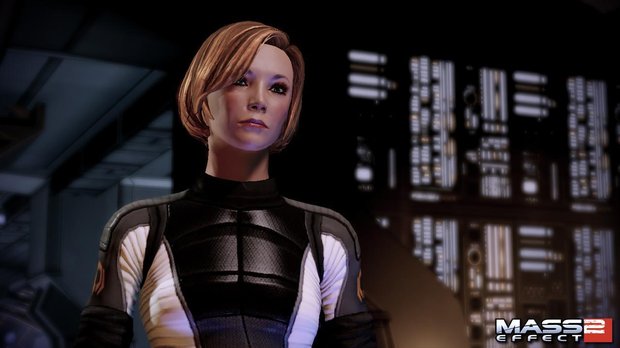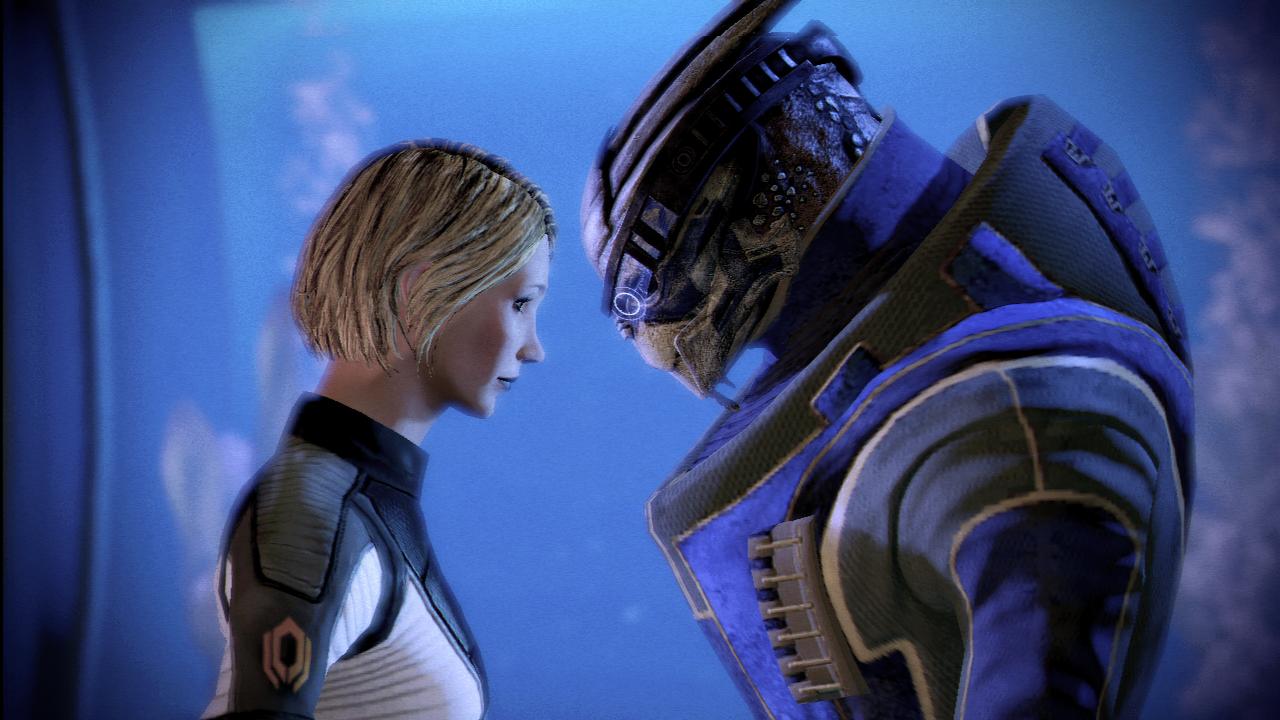High Horse: The case for FemShep
The best version of Mass Effect's story has a lady in charge. Here’s why

High Horse is a rotating opinion column in which GamesRadar editors and guest writers are invited to express their personal thoughts on games, the people who play them and the industry at large.
The people at BioWare have told us that by their reckoning, 80 percent of Mass Effect 2 players elected to play as a male version Commander Shepard. I can think of a couple of totally innocuous explanations for this.

1. Some players don't want to go to the trouble of customizing their character model at all, and accept the game's default as quickly as possible in order to skip to the part where they can shoot stuff.
2. Many players approach the creation of their Shepard as a way to insert themselves into the story, and they create a Shepard consistent with that priority, i.e., male.
I will begin by saying there is nothing wrong with either of those play styles.
But there is another way to play the Mass Effect series, and that is to try to exploit the narrative possibilities of the franchise to their fullest, to push the storytelling envelope as far as it will go. To do that, the first and most important step is to create a female Commander Shepard.1
In his book Pale Blue Dot, Carl Sagan writes:
Weekly digests, tales from the communities you love, and more
To reach the stars, Sagan felt very strongly that we would have to transcend "sexism, racism, nationalism, and the other deadly chauvinisms that plague our species."
One way to hint at humanity's advancement in the centuries that separate the present day from the Mass Effect universe would be to depict a species more at peace with itself; a humanity that has made real strides toward solving the prejudice and bigotry we still struggle with today. What better way to do this than to not only depict its foremost warrior as a woman, but also, crucially, to let that fact go almost entirely unremarked-on throughout the narrative?
Play as a female Commander Shepard, and except for a very few instances, the fact that your character is a woman is a non-issue. Your combat prowess is neither questioned nor used against you.2 Your deeds are evaluated on their own merit, and it seems to never even occur to most characters in the game to mention your gender, let alone use it to draw any sort of conclusion about the kind of soldier or person you may or may not be.
If tomorrow our greatest war hero were a woman, her femininity would be central to everything said about her. But two centuries from now, it may be totally unremarkable. With characters like Chief Ashley Williams, Mass Effect hints at this future, but with a female Command Shepard, it embodies this future.

This, of course, is due in part to the technical constraints of the game. While BioWare can afford the expense of recording two versions of the main character's voice, they can’t record differing versions of every other character's interactions with you (except for those few, gender-specific romance subplots). As a result, the world of Mass Effect is a far more egalitarian one than our own, and this in turn makes for better science fiction, because it is supposed to be a more egalitarian world.
While the game is set in a refreshingly equitable society, its story is being consumed here and now. I know that sounds just eye-rollingly obvious, but stay with me. The real world of 2012 does not enjoy the sexism-free environment of the Mass Effect games, and the consumption of its story is thus unavoidably subject to our own unfortunate problems.
Take Shepard's encounter with Sha'ira, the Asari consort, on the Citadel in ME1. Though it is never stated outright, we are meant to detect more than a whiff of prostitution about her whole operation. Thus, when a male Shepard interacts with her, their discourse carries the baggage of a historical power imbalance between men and women in that context. But female Shepard can interact with Sha'ira as a peer, bypassing that imbalance and addressing her as an equal. Though their spoken lines may be identical, the subtext is profoundly different.
Examples like this abound. While the test famously proposed by Alison Bechdel to determine whether or not a movie was worth her time (does the film contain at least two female characters, who have at least one conversation about something besides a man?) is frequently over-applied, science fiction as a genre has struggled with its portrayals of women, who too often are defined in terms of their relationships with the men in the story. The genre can't help but inherit some of the problems of the society that created it. But Mass Effect, played with a female lead character, doesn't just pass Bechdel's test – it blows it out of the water. Suddenly, there’s a rich cast of female characters, none of whom are forced to negotiate with a man for their narrative payoff. This may not seem important or significant, but it is.

In 2183, Commander Shepard being a woman isn't even newsworthy. But in 2012, it’s nothing short of revolutionary.
[1]: Some may disagree with me that there is a "best" version of the Mass Effect story. I imagine the BioWare developers themselves would say as much. They are all wrong.
[2]: To be clear, I am not suggesting that there are no strong female soldiers anywhere in SF. But when they exist, their prowess frequently either comes at the expense of their femininity (Vasquez in Aliens) or derives inherently from it (Sarah Connor in the Terminator films). Frequently, they have very little to do (Uhura in Star Trek); are important solely thanks to their feelings for the main, male characters (Trinity in The Matrix); or die (Trudy Chacon in Avatar). Commander Shepard is a woman and a soldier, but those two facets of her being have nothing to do with each other.


